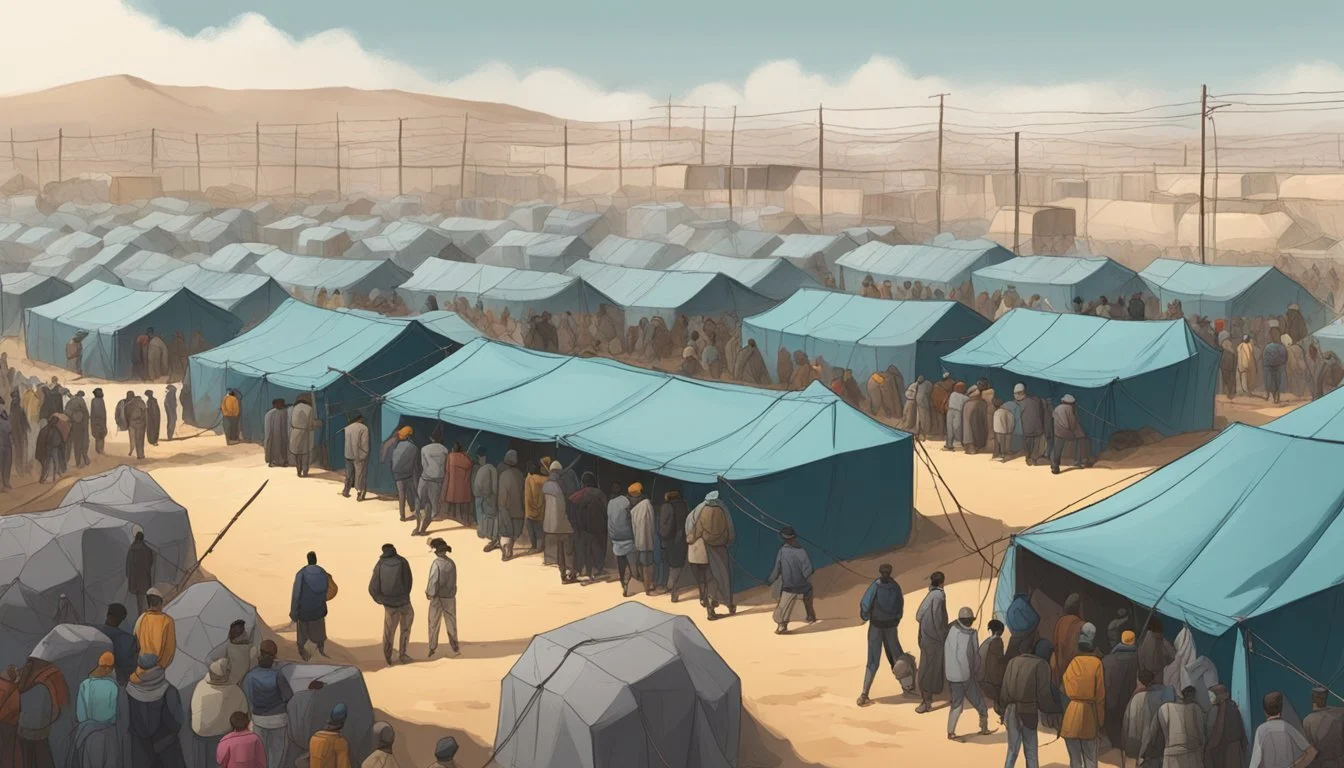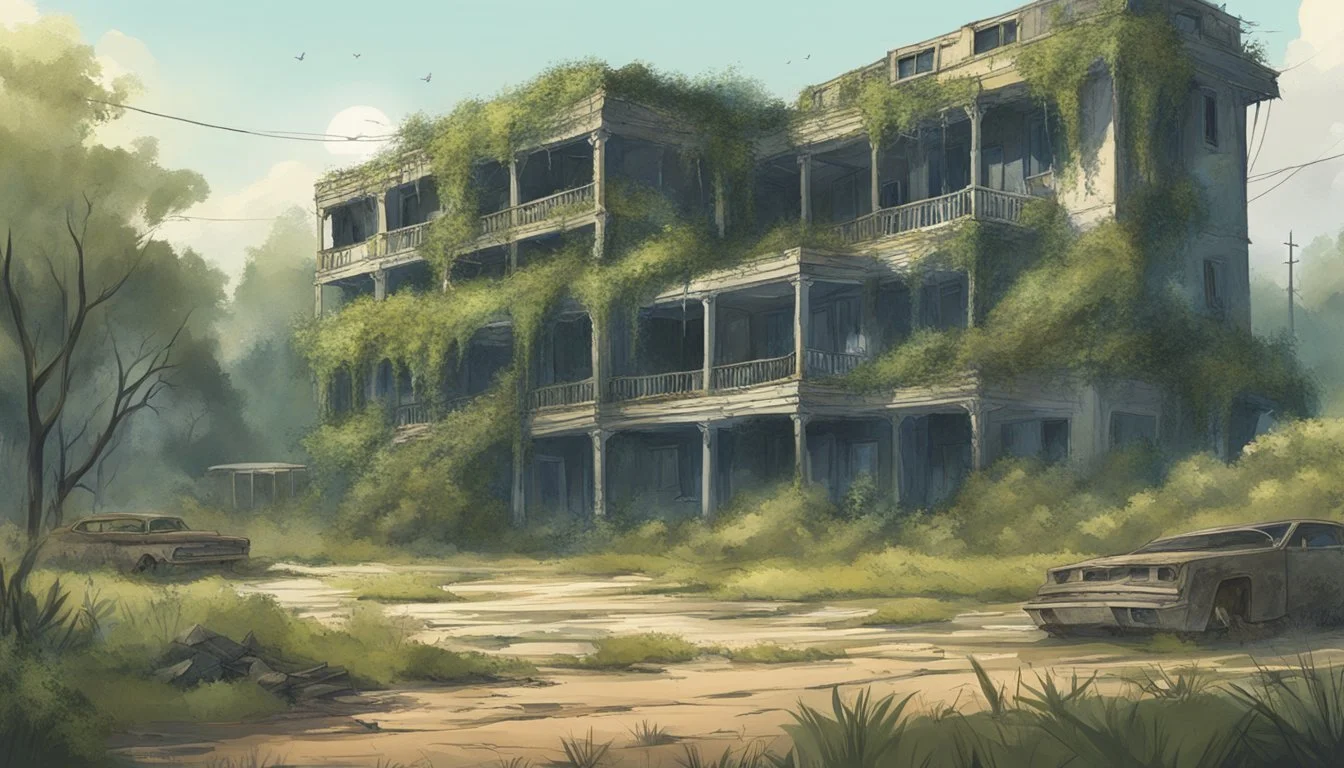Surviving Genocide: The True Story Behind Hotel Rwanda
Untold Realities of the 1994 Rwandan Crisis
The 1994 Rwandan genocide shocked the world as nearly one million people were brutally killed over the course of 100 days. Amidst this horror, one man's actions stood out as a beacon of hope and heroism. Paul Rusesabagina, a hotel manager in Kigali, saved over 1,200 lives by sheltering Tutsi refugees and moderate Hutus at the Hôtel des Mille Collines.
Rusesabagina's courageous efforts during the genocide inspired the 2004 film "Hotel Rwanda," which brought international attention to his story and the atrocities that occurred in Rwanda. The movie portrayed his quick thinking, negotiation skills, and unwavering determination to protect those seeking refuge at his hotel.
While the film dramatized certain aspects of Rusesabagina's story, the real-life events were no less extraordinary. His actions demonstrated the power of individual courage in the face of unimaginable cruelty and violence. Rusesabagina's story continues to resonate today, serving as a testament to the impact one person can have in the midst of a humanitarian crisis.
Background on Rwanda
Rwanda is a small landlocked country in East Africa, bordered by Uganda, Tanzania, Burundi, and the Democratic Republic of the Congo. It has a population of approximately 13 million people.
The country's ethnic makeup consists primarily of two groups: the Hutu majority and the Tutsi minority. A third group, the Twa, makes up a small percentage of the population.
For centuries, Rwandan society was structured around a monarchy led by Tutsi kings. During the colonial era, first under German and then Belgian rule, existing ethnic divisions were exacerbated.
Colonial authorities issued identity cards classifying people as Hutu, Tutsi, or Twa, solidifying these categories. The Belgians favored the Tutsi minority, granting them better access to education and positions of power.
After gaining independence in 1962, Rwanda experienced periods of ethnic tension and violence. Power shifted to the Hutu majority, leading to discrimination against Tutsis.
In the decades leading up to 1994, political instability and economic challenges intensified existing ethnic tensions. Extremist Hutu factions began spreading anti-Tutsi propaganda through various media channels.
This background of long-standing ethnic divisions, colonial manipulation, and political unrest set the stage for the tragic events that would unfold in 1994.
The Real Story of Paul Rusesabagina
Paul Rusesabagina gained international recognition for his actions during the Rwandan genocide. His life story spans from humble beginnings to becoming a hotel manager and eventually a controversial political figure.
Early Life and Career
Paul Rusesabagina was born on June 15, 1954, in Murama, Rwanda. He grew up in a mixed Hutu-Tutsi family during a time of ethnic tensions. Rusesabagina received his early education in Rwandan schools.
In his young adulthood, he pursued hospitality studies in Kenya and Switzerland. This education paved the way for his career in the hotel industry.
Rusesabagina began working at the Hotel des Mille Collines in Kigali in 1984. He quickly rose through the ranks, becoming the assistant manager of the hotel.
The 1994 Genocide
The Rwandan genocide began on April 7, 1994, following the assassination of President Juvénal Habyarimana. Hutu extremists targeted Tutsis and moderate Hutus in a campaign of mass killing.
During this time, Rusesabagina was serving as the manager of the Hotel des Mille Collines. As violence erupted across Kigali, he opened the hotel's doors to those seeking refuge.
Rusesabagina used his position and connections to protect over 1,200 people from the violence. He negotiated with militia leaders and used the hotel's resources to provide shelter and supplies.
The Hotel des Mille Collines
The Hotel des Mille Collines became a sanctuary during the genocide. Rusesabagina managed the hotel's operations under extreme pressure and constant threats.
He used his inventory of alcohol to bribe militia members and maintain a fragile peace. Rusesabagina also made international calls to seek help and raise awareness about the situation.
For 76 days, he protected the hotel's occupants from the violence outside. His actions saved numerous lives and later inspired the film "Hotel Rwanda."
After the genocide, Rusesabagina became an outspoken critic of the Rwandan government. This led to his eventual arrest and imprisonment in 2020, followed by his release in 2023.
The Film 'Hotel Rwanda'
"Hotel Rwanda" brought international attention to the Rwandan genocide through its powerful portrayal of real events. The film dramatized the story of hotelier Paul Rusesabagina and his efforts to save lives during the conflict.
Development and Production
Terry George directed "Hotel Rwanda" and co-wrote the screenplay with Keir Pearson. The film was produced on a modest budget of $17.5 million. Shooting took place in South Africa, with some scenes filmed in Rwanda.
Don Cheadle was cast as Paul Rusesabagina after George saw his performance in "Ocean's Eleven." Sophie Okonedo played Rusesabagina's wife Tatiana. The filmmakers aimed for authenticity, consulting with survivors and visiting genocide memorial sites.
George sought to balance depicting the horrors of genocide with creating a film accessible to mainstream audiences. He focused on Rusesabagina's story as a way to humanize the broader conflict.
Plot Synopsis
The film is set during the Rwandan genocide of 1994. Paul Rusesabagina, a Hutu man married to a Tutsi woman, manages the upscale Hotel des Mille Collines in Kigali. As violence erupts, Rusesabagina uses his position and connections to shelter Tutsi refugees at the hotel.
He bribes militia leaders, uses his diplomatic contacts, and leverages the hotel's resources to protect over 1,200 people. The film depicts Rusesabagina's increasing desperation as the situation worsens and international help fails to arrive.
Key scenes show Rusesabagina negotiating with Hutu extremists, comforting terrified refugees, and pleading for assistance from UN peacekeepers. The film culminates with the evacuation of the hotel's occupants as Tutsi rebels take control of Kigali.
Reception and Impact
"Hotel Rwanda" received critical acclaim upon its release in 2004. It earned three Academy Award nominations, including Best Actor for Don Cheadle. The film grossed over $33 million worldwide.
Critics praised the film's powerful storytelling and performances. Many noted its success in bringing wider attention to the Rwandan genocide. The movie became a tool for education about the conflict in schools and universities.
Paul Rusesabagina gained international fame following the film's release. He embarked on speaking tours and wrote an autobiography. The increased awareness led to more aid and support for genocide survivors in Rwanda.
Controversies and Criticisms
Despite its positive reception, "Hotel Rwanda" faced some criticism. Some survivors argued the film downplayed the brutality of the genocide to make it more palatable for Western audiences.
Questions arose about the accuracy of Rusesabagina's portrayal. Some Rwandans, including President Paul Kagame, accused Rusesabagina of exaggerating his role. They claimed he charged refugees for rooms and food at the hotel.
The Rwandan government's relationship with Rusesabagina soured in the years following the film. In 2020, Rusesabagina was arrested on terrorism charges, leading to debates about his legacy and the film's impact on perceptions of Rwandan history.
Survivor Accounts
Firsthand testimonies from those who lived through the Rwandan genocide provide crucial insights into the events at Hotel des Mille Collines. These accounts offer a more nuanced perspective than the Hollywood portrayal.
Personal Testimonies
Survivors who sought refuge at Hotel des Mille Collines during the 1994 genocide have shared their experiences. Many describe overcrowded conditions and constant fear.
Some recount instances of bravery by hotel staff who risked their lives to protect guests. Others highlight the resourcefulness of those trapped inside, who worked together to survive.
Several testimonies challenge aspects of the "Hotel Rwanda" film narrative. They argue that Paul Rusesabagina's role was exaggerated and that many other individuals played crucial parts in saving lives.
Narratives of Escape and Protection
Accounts of escape from Hotel des Mille Collines vary. Some describe bribing militia members to leave the premises. Others recall sneaking out under cover of darkness.
Survivors tell of creative methods used to communicate with the outside world and secure help. These include using the hotel's fax machine to contact international media and organizations.
Many narratives emphasize the collective effort of those inside the hotel. Tutsis and moderate Hutus worked together to resist attacks and maintain morale during the long siege.
Post-Genocide Rwanda
Rwanda underwent significant changes in the years following the 1994 genocide. The country focused on rebuilding its society, economy, and political structures while grappling with the aftermath of mass violence.
Reconciliation Efforts
Rwanda implemented gacaca courts to address genocide crimes and promote reconciliation. These community-based tribunals tried over 1.2 million cases between 2001 and 2012. The government also established the National Unity and Reconciliation Commission in 1999 to foster social cohesion.
Education played a key role in reconciliation efforts. Schools incorporated genocide studies into curricula, emphasizing shared Rwandan identity over ethnic divisions. The Ingando solidarity camps brought together ex-combatants, returning refugees, and students to discuss national history and promote unity.
Rwanda focused on economic development as a means of rebuilding. The country achieved significant GDP growth, improved healthcare access, and reduced poverty rates in the decades following the genocide.
Rusesabagina's Later Life and Activism
Paul Rusesabagina, portrayed as a hero in "Hotel Rwanda," became an outspoken critic of the post-genocide Rwandan government. He established the Hotel Rwanda Rusesabagina Foundation in 2006 to support genocide survivors and promote reconciliation.
Rusesabagina's relationship with the Rwandan government deteriorated over time. He accused President Paul Kagame's administration of human rights abuses and authoritarianism. In 2020, Rusesabagina was arrested and charged with terrorism-related crimes.
A Rwandan court convicted Rusesabagina in 2021, sentencing him to 25 years in prison. This conviction sparked international controversy, with some viewing it as politically motivated. Rusesabagina's case highlights the complex political landscape of post-genocide Rwanda.
Analysis and Discussion
The film "Hotel Rwanda" raises important questions about historical representation, depictions of genocide, and media's role in shaping narratives of atrocity. Its portrayal of events during the Rwandan genocide has sparked both praise and criticism.
Historical Accuracy
"Hotel Rwanda" takes some creative liberties with historical details. The film compresses events and simplifies complex political dynamics for dramatic effect. Paul Rusesabagina's heroic actions are emphasized, though some survivors dispute aspects of his portrayal.
The movie captures the general atmosphere of fear and chaos during the genocide. However, it omits certain brutal realities to maintain a PG-13 rating. This sanitization has drawn criticism from some who feel it doesn't fully convey the horror of events.
Factual inaccuracies include the depiction of UN peacekeepers, who had a more limited mandate than shown. The film also exaggerates the role of Western media in raising awareness about the genocide.
Representations of Genocide
"Hotel Rwanda" employs a personalized narrative to make the genocide's enormous scale more comprehensible. It focuses on individual stories of survival and heroism against a backdrop of mass violence.
The film's approach has been praised for humanizing victims and highlighting moral courage. Critics argue it oversimplifies complex ethnic tensions and political factors that led to the genocide.
Depictions of violence are largely implied rather than graphic. This creative choice makes the film more accessible but risks downplaying the brutality of events. The movie's framing of the genocide through a Western lens has also faced scrutiny.
Media's Role in Storytelling
"Hotel Rwanda" itself exemplifies media's power to shape public understanding of historical events. The film brought global attention to a genocide that was underreported at the time.
Its dramatic narrative helped engage audiences emotionally with a distant tragedy. This approach has been credited with raising awareness but criticized for potentially distorting historical nuances.
The movie depicts journalists as crucial witnesses, though their actual impact during the genocide was limited. It highlights media's potential to spur international action, while also showing how initial reports often failed to convey the full scope of atrocities.
Legacy and Remembrance
The Rwandan genocide left an indelible mark on history, shaping efforts to prevent future atrocities and honor those lost. Ongoing initiatives focus on education, awareness, and commemoration.
Education and Awareness
Schools across Rwanda incorporate genocide studies into their curriculum. Students learn about the historical context, causes, and consequences of the 1994 events. International organizations partner with local institutions to develop educational materials and train teachers.
Museums like the Kigali Genocide Memorial serve as educational centers. They house exhibits, artifacts, and survivor testimonies. Visitors gain insights into Rwanda's past and the importance of preventing future genocides.
Documentary films and books continue to shed light on personal stories and collective experiences. These works reach global audiences, fostering understanding and empathy.
Memorials and Commemorations
Rwanda observes Kwibuka (Remembrance) annually from April 7 to July 4. This period marks the duration of the genocide against the Tutsi. Communities hold vigils, ceremonies, and educational events.
Genocide memorials dot the Rwandan landscape. Notable sites include:
Ntarama Church Memorial
Murambi Genocide Memorial Centre
Nyamata Church Memorial
These preserved locations serve as solemn reminders and places of reflection. They often display victims' personal belongings and human remains.
International commemorations take place at the United Nations and in countries worldwide. These events promote solidarity and reaffirm commitments to "Never Again."





